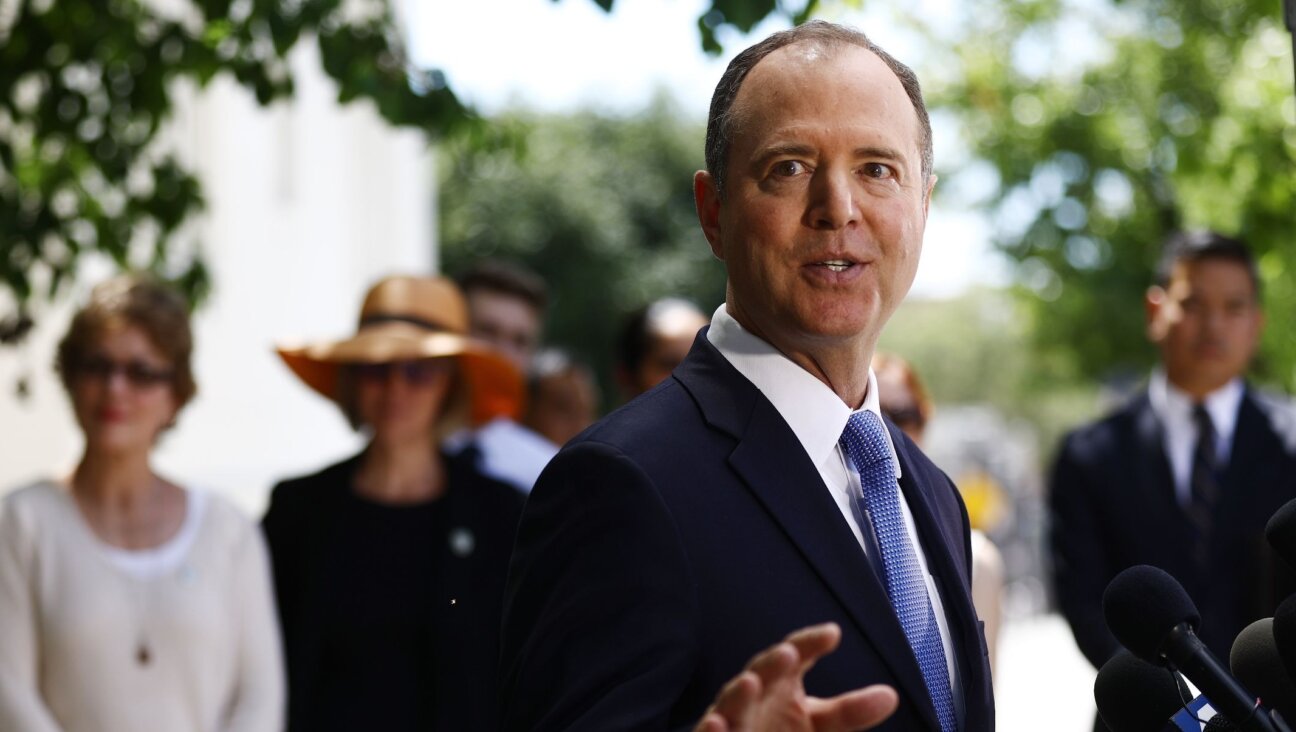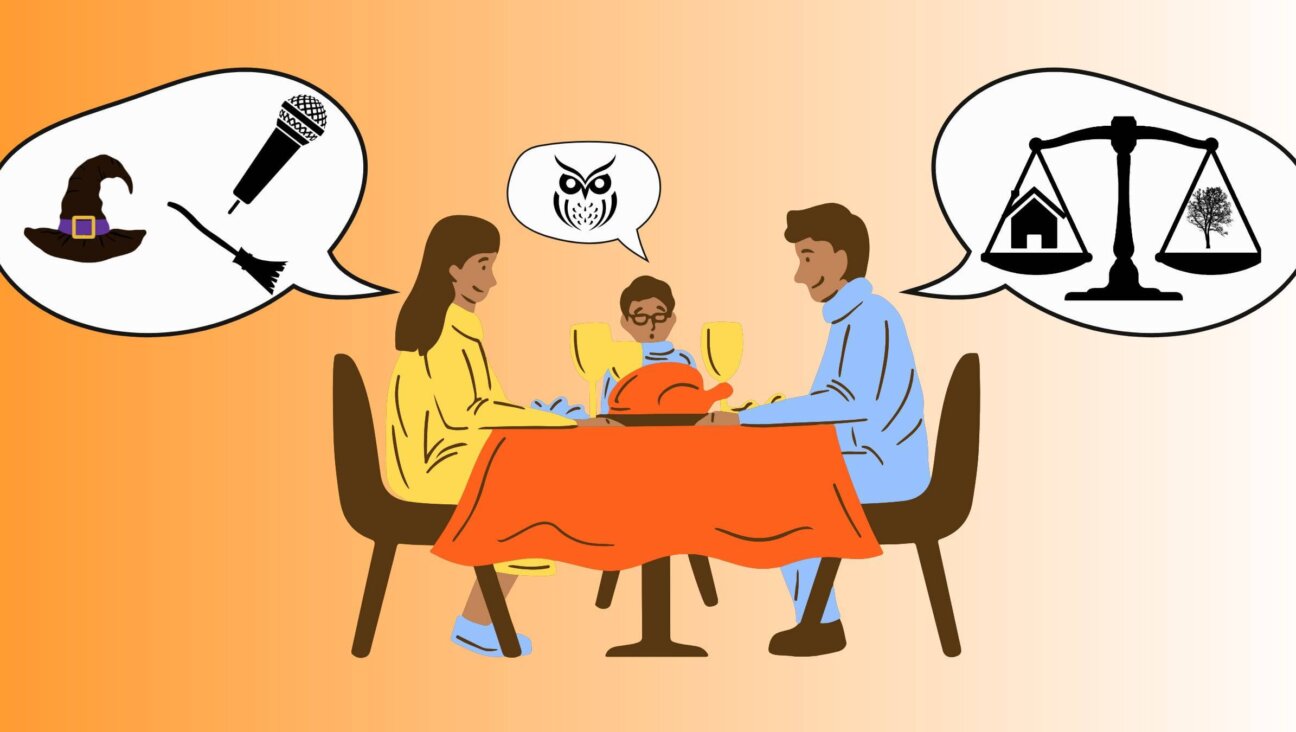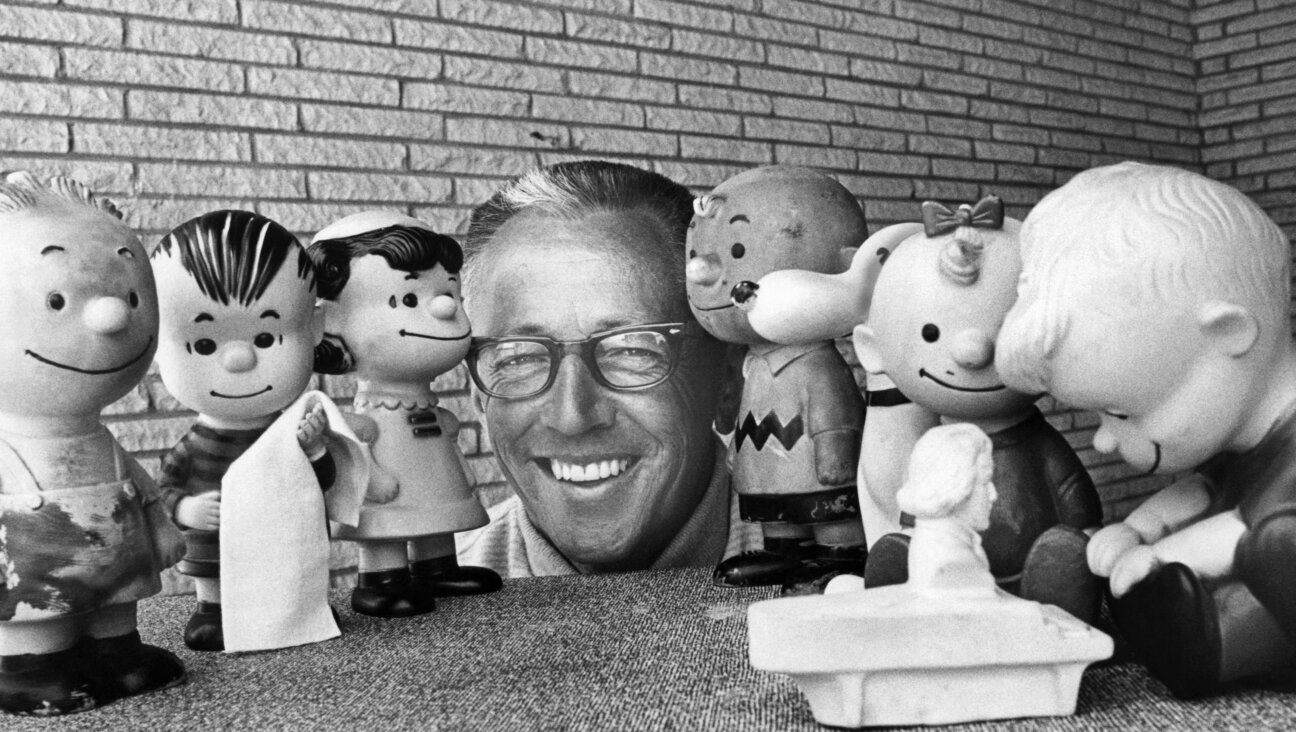December’s Longstanding Dilemma
As Christmas cheer settles over the nation, making its inescapable presence felt everywhere, America’s Jews typically respond in any number of tried and true ways. Some sheepishly admit to enjoying the whole nine yards, from the strains of Handel’s “Messiah” to the sights of gaily bedecked Christmas trees, and succumb to Christmas’s considerable charms. Others are made anxious by the festivities, proffering the ubiquity of holiday spirit as proof positive that, when all is said and done, America is truly a Christian nation. And then there are those who, with a shrug of the shoulders, acknowledge Christmas’s impact on American culture, and leave it at that.
Each of these cultural strategies has the weight of history behind it. Given form, they are also the stuff of American Jewish letters. Take, for instance, Grace Paley’s short story “The Loudest Voice,” which first appeared in 1959 and is now reckoned among the classics of American Jewish literature. In it, one Shirley Abramowitz is recruited to play the voice of Jesus in her public school’s annual Christmas pageant. “They tell me you had a particularly loud, clear voice and read with lots of expression. Could that be true?” inquires pageant organizer Mr. Hilton, who is in search of a “child with a strong voice, lots of stamina.” Flattered, Shirley eagerly agrees to become Jesus, if only for an afternoon. (“It was a long story, it was a sad story…. Sorrowful and loud, I declaimed about love and God and Man.”
Shirley’s immigrant parents don’t quite know what to make of this turn of events. They quarrel. Perhaps it’s a good thing, muses her father, Misha. “What’s the harm?” Shirley’s mother, Clara, isn’t so sure, and gives voice to grave concern about life in America. Eventually, though, she comes around, too. Told by a nosy neighbor that a number of Christian students in the school were not given parts in the play, she responds: “What could Mr. Hilton do? They got very small voices; after all, why should they holler…. You think it’s so important that they should get in the play? Christmas… the whole piece of goods… they own it.” For the Abramowitz family, playing Jesus was not so much a betrayal of Jewish history as it was an opportunity to embrace America.
Meanwhile, for other immigrant Jewish families, embracing America meant the categorical rejection of Christmas, not its casual acceptance. “Jews Anti-Xmas,” The New York Times boldly reported in December 1906, informing its readers that upward of 20,000 Jewish elementary school students, egged on by their rabbis and by inflammatory editorials in the Yiddish press, had played hooky from school on the Monday before Christmas in defiance of the way their teachers had made so very much of the holiday. “Far be it from us to stir up race strife,” one protester allowed. “But this step has become necessary as a protest against the narrow-minded bigots who are seeking to force sectarianism in the public school to the detriment of the Constitution.”
During the previous two years, New York’s Board of Education had been under considerable pressure from such Jewish groups as the Union of Orthodox Jewish Congregations of America to eliminate from the precincts of the public schools such common practices as the singing of Christmas hymns, the display of Christmas trees, the hanging of “pictures of Madonnas and others of similar significance” on classroom walls and the assigning of compositions on Christian themes. “All these things should be done away with as completely as should be corresponding symbols of Judaism, Mohammedanism or Infidelism,” their leaders declared, taking a principled stand in favor of the separation of church and state.
But each time the issue had come up for consideration, the school board stonewalled, even going so far on one occasion as to deny that Christmas practices had anything at all to do with Christianity — a claim that skeptically inclined Jews rejected out of hand: “Christmas ceremonies without a religious flavor would be very much like the play of ‘Hamlet’ without Hamlet,” they replied scoffingly. But to no avail.
And so, when another Christmas rolled around in the winter of 1906 with no indication whatsoever that the Board of Education had taken its concerns to heart, the immigrant Jews of Manhattan’s Lower East Side and of Brooklyn’s Brownsville neighborhood assumed a “manly American stand,” and stayed home from school. Conflating masculinity with American-ness and American-ness with freedom of religion, they would have nothing to do with Christmas. ’Tis the American way.
In that very same year, still other American Jews took to the pages of Ladies’ Home Journal to express their feelings about the modern-day Christmas. Using the popular women’s magazine to set the record straight, Rabbi Emil G. Hirsch sought to make clear that contemporary American Jews like himself had nothing against the yuletide spirit. On the contrary. They welcomed its “song of brotherhood” and its “proclamation of good will” as expressions of neighborliness. So much so that when the modern-day Jew “sees the lights leap into glory in his neighbors’ homes he breathes forth a fervent prayer for their happiness.”
That said, the good rabbi concluded, there really was no need for the American Jew to celebrate Christmas. After all, he had Hanukkah. “For himself and his own, however, as yet he prefers to wait. He kindles his less radiant Hanukah lamps, and in their more modest glow reads the prophecy of a more inclusive advent when Peace will prevail on God’s earth.”
Sound advice, as timely today as it was a century ago, Rabbi Hirsch’s words remind us how much has changed and how much has remained the same.
A message from our CEO & publisher Rachel Fishman Feddersen

I hope you appreciated this article. Before you go, I’d like to ask you to please support the Forward’s award-winning, nonprofit journalism during this critical time.
We’ve set a goal to raise $260,000 by December 31. That’s an ambitious goal, but one that will give us the resources we need to invest in the high quality news, opinion, analysis and cultural coverage that isn’t available anywhere else.
If you feel inspired to make an impact, now is the time to give something back. Join us as a member at your most generous level.
— Rachel Fishman Feddersen, Publisher and CEO






















